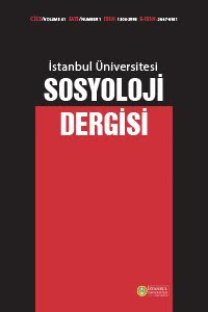Yerel Kimliklerin Korunmasında Ortak Hafızanın Önemi (Müslüman Mübadiller Örneği)
Dünya tarihinde gerçekleşen nüfus mübadelelerine en önemli örneklerden biri yirminci yüzyılda Yunanistan ile Türkiye arasında gerçekleştirilmiş olan nüfus mübadelesidir. Bu zorunlu göç, sadece her iki ülkenin tarihini etkilemekle kalmamış, aynı zamanda yüzbinlerce kişinin ve ailelerinin yaşamlarını derinden etkilemiş, kimlik ve toplumsal hafızaları üzerinde son derece etkili olmuştur. Her ne kadar ortak bir hafızanın varlığı söz konusu ise de mübadeleye tabi tutulan Müslüman halk birçok açıdan homojen bir nüfus oluşturmamaktadır. Buna rağmen, özellikle doğdukları topraklardan zorunlu ayrılmalarından ve bunun devamında birçok farklı nedene bağlı olarak oluşmuş ortak bir bellekten bahsetmek mümkündür. Kuşaktan kuşağa aktarılan bu ortak hafıza, oldukça özel bir örnek olan bu göçmen grubunun, grup içi farklılıklarına rağmen yerel kimliklerinin günümüze kadar koruması ve yaşatmasındaki etkisi bakımından özellikle dikkat çekmektedir. Bu çalışmada, nüfus mübadelesi sonrasında Türkiye'ye yerleşen Müslüman nüfusun ortak hafızasının oluşumu incelenecektir.
Anahtar Kelimeler:
Nüfus Mübadelesi; Yunanistan; Türkiye; Kimlik; Ortak Hafıza
Collective Memory: The Preservation Key of the Original Identities (The Case of the Muslim Exchanged Population)
In a worldwide scale, one of the big examples of the 20th century's exchange population was the one between Greece and Turkey. This compulsory migration has affected not only the history of the two countries but also has influenced the life of more than two million exchanged persons and their descendants, from a point of view of identity and memory. Concerning the Muslim population that makes part of the population exchange, even viewed from many points it was not a homogeneous population, we can observe a collective memory related more particular to their uprooting from its natal territories. This collective transgenerational memory is interesting to study mainly because it acts as a key of identity preservation for a special group of migrants. In resume, this article will be focused on the study of the collective memory of the Muslim population settled in Turkey after the population exchange.
___
- Bayındır Goularas, G. (2010a). Vers les terres natales, vers les terres des ancêtres, Téoros, n°29-1, pp: 31-36.
- Bayındır Goularas, G. (2010b). Salonique en Turquie : Mutations géopolitiques et Adaptations Iconographiques, thèse de doctorat non publiée. Paris : Université Paris I Panthéon-Sorbonne.
- Belli, M. (2006). Türkiye-Yunanistan nüfus mübadelesi, ekonomik açıdan bir bakış, Istanbul : Belge.
- Bruneau, M. (2006). Les territoires de l’identité et la mémoire collective en diaspora, l’Espace Géographique, 36 (4), pp : 328-333.
- Bruneau, M. & Papoulidis, K. (2001). La mémoire de l’Hellénisme réfugié : les monuments commémoratifs en Grèce (1936-2004), Thessalonique: Ekdotikos Oikos.
- Cabanel, P. (Ed.), (2005). Mémoire en migration, Diaspora, Histoire et Société, Presse Universitaire du Mirail.
- Clark, B. (2008). İki kere yabancı: Kitlesel insan ihracı modern Türkiye ve Yunanistan’ı nasıl biçimlendirdi, Istanbul: Istanbul Bilgi Üniversitesi.
- Dos Santos, I. (2007). Continuité et rupture dans la migration : la problématique mémorielle, actes du colloque interdisciplinaire : Nouvelles perspectives de la recherche française sur la culture portugaise, Maison des Sciences de l’Homme de Clermont-Ferrand.
- Gottmann, J. (1955). Éléments de géographie politique, Les cours de Droit, fasc. II, Paris.
- Gottmann, J. (1973). The significance of territory, Charlottesville : University Press of Virginia.
- Halbwachs, M. (1950). La mémoire collective, Paris : Albin Michel.
- Halbwachs, M. (1925). Les cadres sociaux de la mémoire, Paris : Félix Alcan.
- Kayam, C. (1993). Lozan Barış Antlaşmasına göre Türk-Yunan nüfus mübadelesi ve konunun TBMM’de görüşülmesi », Atatürk Araştırma Merkezi Dergisi (pp. 581-608), 27 (IX), Temmuz-Kasım, Ankara.
- Ladas, S. (1932). The Exchange of minorities : Bulgaria, Greece and Turkey, New York : Macmillan.
- Lavabre, M-C. (2000). Usages et mésusages de la notion de mémoire, Critique internationale (pp. 48-57), no. 7, avril 2000.
- Prevelakis, G. (1995). La notion du territoire dans la pensée de Jean Gottmann, IRD, Disponible sur : http://horizon.documentation.ird.fr/exldoc/pleins_textes/divers08-09/010014865-40.pdf.
- ISSN: 1304-2998
- Başlangıç: 2020
- Yayıncı: İstanbul Üniv. Edebiyat Fak. Sosyoloji Böl.
Sayıdaki Diğer Makaleler
Avrupa Toplumlarının Göç Algıları ve Tutumları: Sosyolojik Bir Yaklaşım
Kayseri Örneği Üzerinden Kentleşme ve Şiddet İlişkisi: İleriye Dönük Bir Projeksiyon
Altay AKTÜRK, Aylin YAKUPOĞLU, Dilek ÇELİK, Gökhan ORAL
Sosyometrinin Doğuşu ve Gelişimi
Alikoç Köyü (Makedonya) Özelinde Kadının Evlilik Göçü
Göçmen İşçinin Sıla Hasreti: Bir Yabancılaşma Hikayesi
Antalya'daki Rus Gelinler: Göçten Evliliğe, Evlilikten Göçe
Sokaklardan “Club”lara: Alman-Türk Gençliğinin Müzik Serüveni
Serhat GÜNEY, Cem PEKMAN, Bülent KABAŞ
Yoğun Göç Almış Metropollerde Etniklik ve Öteki ile İlişki
Nüfus Coğrafyası Açısından Bir İnceleme: Beypazarı
Britanya'daki Asyalı Gençlik, Kent Protestoları ve Yerel Aidiyetler
